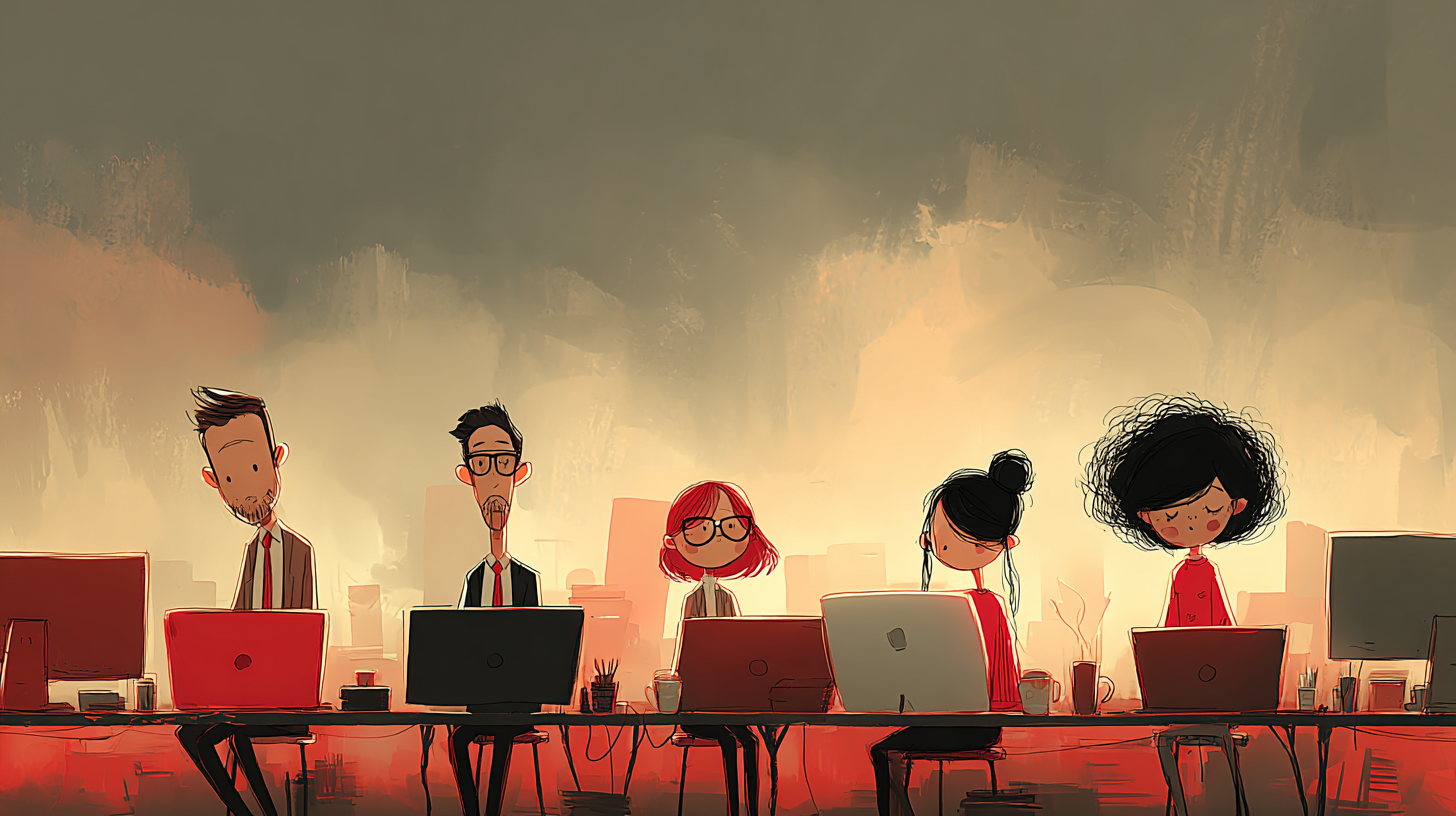It means one single person or something special and unique.
一人ひとりの人や、特別な人のこと。
以下は英単語 “individual” に関するストーリー型学習コンテンツです。まずは大枠の意味を理解して最後の文章で確認しましょう。
主な意味(main meaning)
| 品詞 | 意味 | 発音記号 (IPA) | 例文 |
|---|---|---|---|
| 名詞 | 個人、一人の人 | /ˌɪndɪˈvɪdʒuəl/ | Each individual has their own opinion. |
| 形容詞 | 個々の、独自の | /ˌɪndɪˈvɪdʒuəl/ | She has an individual style of painting. |
語源(etymology)
“individual” はラテン語 individuus(分けられない、割れない)から来ており、
「一人の人」や「分けられない存在」というイメージがある。
類義語(synonyms)
| 類義語 | 例文 |
|---|---|
| person | Every person in the room listened carefully. |
| human | Each human has basic rights. |
| character | He is a strange character but very kind. |
| figure | A famous figure appeared at the event. |
反義語(antonyms)
| 反義語 | 例文 |
|---|---|
| group | A group of students worked together on the project. |
| crowd | The crowd cheered loudly at the concert. |
コロケーション(collocations)
| コロケーション | 例文 |
|---|---|
| individual rights | We must protect individual rights in society. |
| individual choice | It is your individual choice to decide your future. |
| individual responsibility | Each worker has individual responsibility. |
| individual needs | Teachers must consider students’ individual needs. |
2項表現(binomials)
| 2項表現 | 例文 |
|---|---|
| law and order | The police try to keep law and order. |
| rights and responsibilities | Citizens have both rights and responsibilities. |
英語ストーリー(english story)
The Individual at Work
Tom had just started a new job at a publishing company. On his first day, his manager told him, “Here, every individual has both rights and responsibilities. We value teamwork, but we also respect each person’s character.”
Tom was happy to hear this. He believed that each individual should be recognized, not only as part of a group but also as a unique human being.
During his first project, Tom worked with three other colleagues. The group was assigned to design a new magazine. At first, the group focused on working together, but soon Tom noticed that everyone also had their individual responsibilities. One person focused on writing, another on layout, and Tom worked on editing.
One day, a problem occurred. The group had to decide which design to choose. Some members wanted a modern style, while others preferred a classic one. Tom felt nervous, but he spoke up: “I think we should respect each person’s individual choice. Maybe we can combine both styles.”
The manager praised his idea. “That is the right balance between individual needs and group goals,” she said.
Later, Tom realized that being part of a group does not mean losing individuality. Instead, individuality can help the group become stronger. For example, one colleague had a very individual style of drawing. At first, Tom thought it was strange, but when they added it to the magazine, it became the highlight of the design.
At the end of the project, the manager reminded them, “Every person here matters. Each human in this company is important. Remember, law and order are necessary, but rights and responsibilities must always go together.”
Tom smiled. He now understood the meaning of being an individual in a workplace. It was not about being alone, but about contributing his unique abilities to the group.
和訳
職場の「個人」
トムは出版社で新しい仕事を始めたばかりだった。初日に上司はこう言った。
「ここでは、すべての**individual(個人)がrights(権利)とresponsibilities(責任)を持っています。私たちはチームワークを大切にしますが、同時に一人ひとりのcharacter(性格・個性)**も尊重します。」
トムはその言葉を聞いて嬉しかった。彼は、**individual(個人)は集団の一部としてだけでなく、特別なhuman(人間)**として認められるべきだと信じていた。
最初のプロジェクトで、トムは3人の同僚と一緒に働いた。チームは新しい雑誌を作る仕事を与えられた。最初はみんなで協力することに集中したが、やがてトムはそれぞれが**individual responsibility(個人の責任)**を持っていることに気づいた。ある人は文章を書き、別の人はレイアウトを担当し、トムは編集をした。
ある日、問題が起きた。どのデザインを選ぶかで意見が分かれたのだ。ある人はモダンなデザインを望み、他の人はクラシックなものを好んだ。トムは緊張したが、勇気を出して言った。
「僕は、それぞれの**individual choice(個人の選択)**を尊重すべきだと思います。両方を組み合わせることができるかもしれません。」
上司はその意見をほめた。
「それが**individual needs(個人のニーズ)とgroup(集団)**の目標のバランスなのです。」
後になってトムは気づいた。グループの一員であることは、個性を失うことではない。むしろ、個性があるからこそグループは強くなれるのだと。たとえば、ある同僚はとても**individual(独自の)**な絵のスタイルを持っていた。最初、トムはそれを奇妙だと思ったが、雑誌に加えると、デザインの一番の魅力になった。
プロジェクトの最後に上司は言った。
「ここにいる**every person(すべての人)が大切です。この会社のeach human(すべての人間)**は重要なのです。覚えておいてください。**law and order(法と秩序)**は必要ですが、**rights and responsibilities(権利と責任)**は常に一緒でなければなりません。」
トムは微笑んだ。彼は職場で**individual(個人)**であることの意味を理解した。それは孤独でいることではなく、自分の特別な力をグループに役立てることだった。
Q&A
Q: 「individual」と「person」の違いは?
A: 「person」は単に「人」という意味で、日常的に幅広く使われます。「individual」は「一人ひとりの人」や「独自の存在」として強調するときに使われます。
Q: 「individual」と「human」の違いは?
A: 「human」は「人間」という種としての存在を表します。「individual」はその人間の中の「一人ひとり」を強調します。
Q: 「individual」と「character」の違いは?
A: 「character」は「性格」や「個性」を表す言葉です。「individual」は「人そのもの」や「一人の存在」を指します。つまり「character」はその人の内面的な特徴、「individual」はその人全体です。
Q: 「individual」と「figure」の違いは?
A: 「figure」は「有名人」や「重要人物」を指す場合が多いです。「individual」は一般的に「一人の人」や「特別な人」を意味し、有名さは関係ありません。
Q: 「individual」と「group」の違いは?
A: 「group」は「集団」「まとまり」を表します。一方「individual」はその「集団の中の一人」を指す言葉です。
Q: 「individual」と「crowd」の違いは?
A: 「crowd」は「大勢の人の集まり」を表し、まとまりよりも「数が多い状態」を強調します。「individual」はその「群衆の中の一人」を表すときに使われます。
Q: 「individual needs」と「group needs」の違いは?
A: 「individual needs」は「個人のニーズ」で、一人ひとりが持つ異なる必要や希望を表します。「group needs」は「集団全体のニーズ」で、多数の人が共通して必要とするものを意味します。
Q: 「individual responsibility」と「group responsibility」の違いは?
A: 「individual responsibility」は「個人の責任」で、それぞれが果たすべき責任を意味します。「group responsibility」は「集団としての責任」で、チームや組織がまとめて負う責任を指します。
Q: 「individual rights」と「law and order」の違いは?
A: 「individual rights」は「個人が持つ権利」です。一方「law and order」は「社会全体の秩序や安全」を表します。つまり、一人の権利と社会の秩序はバランスをとる必要があります。
Q: 「rights and responsibilities」と「individual rights」の違いは?
A: 「rights and responsibilities」は「権利と責任はセットで考える」という表現です。「individual rights」はその中の「個人の権利」に焦点を当てています。
このように整理すると、「individual」は常に「一人ひとり」「独自性」「特別さ」を強調する点が他の単語との大きな違いです。



コメント